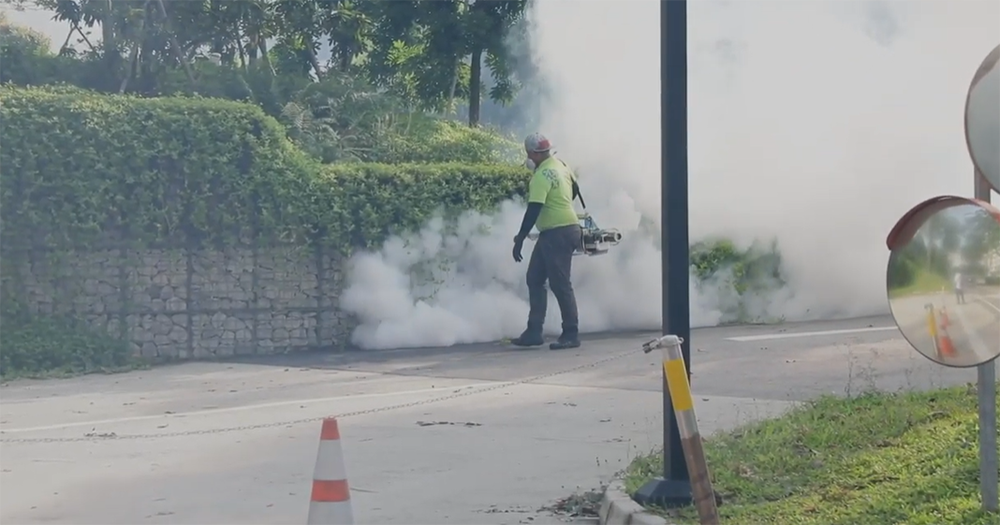As of June 12, 3pm, the number of dengue cases in Singapore for 2020 has reached 10,732, according to the National Environment Agency (NEA).
From June 7 to June 12, 3pm, the weekly number of dengue cases exceeded a 'historical high' with 895 new cases recorded.
The previous record was 891 new weekly cases in 2014.
In a report released on June 3, NEA stated that the number of dengue cases reported this year is expected to exceed 2019's figure of 15,998 and may even exceed the 2013 outbreak in which 22,170 cases were reported.
Meanwhile, the week ending June 6 saw 870 new cases of dengue recorded, with the total number of cases coming up to 9,837.
The death toll for dengue this year currently stands at 12 people, aged between 56 and 80 years old.
210 active dengue clusters reported
As of June 13, there are currently 210 active dengue clusters reported, with the largest cluster at Woodleigh Close, which has 207 cases.
A total of 66 clusters have been deemed as high-risk areas. A high-risk area is an area with more than 10 cases.
NEA added that the traditional peak dengue season is expected to last for a few months, from June to October.
Why are there so many cases?
One reason is that few people have immunity against dengue now as there is a change in the dominant dengue serotype to DenV-3, which was last dominant about 30 years ago.
There are four dengue serotypes and people are only immune against the type they have previously been infected with.
These days, mosquitoes breed more easily in the months of May to September as they are warmer.
Also, more people are staying home during this circuit breaker.
As such, there has been a "five-fold increase" in the instances of the Aedes mosquito larvae being detected in homes and common corridors in residential areas during the two-month Circuit Breaker.
NEA further noted that the highest percentage of mosquito breeding found in homes within the top five dengue cluster areas was 84 per cent.
It said:
“With a shift in human concentration from offices to homes, more people staying at home during the day also means more blood meals for the female Aedes aegypti mosquitoes, especially in residential areas where the mosquito population is also high.”
More details on what is potentially Singapore's largest dengue outbreak and the steps being taken:
Top image screenshot from NEA YouTube
If you like what you read, follow us on Facebook, Instagram, Twitter and Telegram to get the latest updates.
